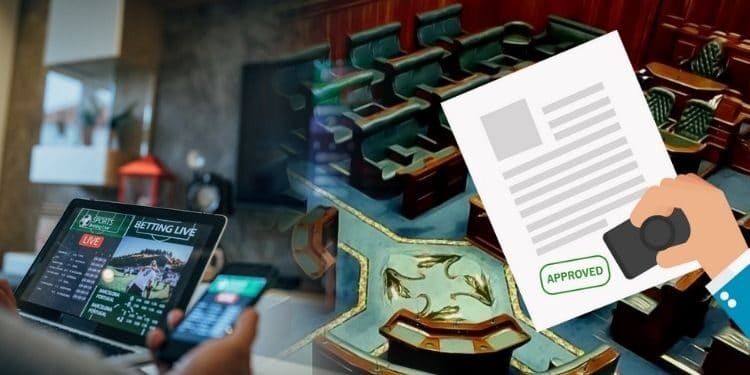The Massachusetts House of Representatives overwhelmingly adopted a measure to legalize sports betting on Thursday evening, but even before the vote, the issue of whether or not to allow wagers on college sports became a major point of debate between the House and Senate.
Andy Vargas, a member of the House of Representatives, said that he represents a district that straddles the state line between Massachusetts and New Hampshire. He added that one could actually stroll into New Hampshire from Haverhill and place a wager. He also said that people who bet on sports would prefer to do it from the comfort of their own homes and in their own state, with any proceeds going to their home state of Massachusetts.
Thirty states have legalized sports betting in some form, including nearby Rhode Island, Connecticut, New Hampshire, and New York. Meanwhile, bettors in Massachusetts are still drawn to illegal gaming.
The House bill would subject sports betting to the Gaming Commission’s jurisdiction, require all bettors to be at least 21 years old and physically present in Massachusetts, and enact a slew of consumer protections against problem gambling, similar to those enacted for casinos when Massachusetts legalized gambling in 2011.
In-individual bets would be taxed at 12 percent, while mobile bets would be taxed at 15%. The greater tax on mobile operators, according to Parisella, recognizes the additional prices that brick-and-mortar enterprises would incur and is intended to encourage customers to patronize businesses that employ Massachusetts residents.
An additional 1% tax would be imposed on wagers placed on athletic events held in Massachusetts, with the proceeds divided proportionally among the venues that hosted the games and used for sports wagering security and integrity.






